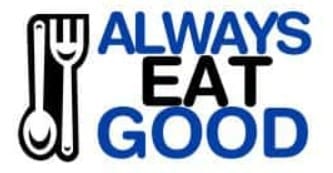You just ate a proper meal — not a tiny snack, not just a coffee — and yet your stomach is back to growling 30 minutes later.
So you start to wonder: Why am I always hungry?
The short answer? Hunger is more complicated than just “I didn’t eat enough.” It’s affected by what you eat, how you eat, your sleep, your stress, and even your phone habits.
Let’s break down exactly what’s going on — and how to fix it.
1. You’re Not Eating Enough Protein
This is one of the most common causes. If your meals are mostly carbs (like toast, cereal, plain rice, or pasta), you’ll probably get hungry again fast. Protein keeps you full longer — it digests slower and signals your body that you’re satisfied.
What to do:
Add a solid source of protein to every meal: eggs, chicken, lentils, beans, tofu, cottage cheese, tuna, or Greek yogurt. It doesn’t have to be expensive — just balanced.
2. You’re Dehydrated
A lot of the time, what feels like hunger is really just thirst. The signals are similar, and your brain can mix them up — especially if you’re drinking mostly coffee or soda all day.
What to do:
Start your meals with a glass of water. Keep a water bottle near you. If you’re rarely thirsty, cool — but if you’re thirsty all the time, you’re probably eating to compensate.
3. You’re Eating Too Many Ultra-Processed Foods
Packaged snacks, instant noodles, and fast food are designed to keep you wanting more. They often lack fiber and protein — the two things that help you feel full — and mess with your body’s natural hunger cues.
What to do:
Even cooking one simple meal a day using real ingredients can help. Think rice and beans, eggs and toast, or a basic lentil soup. You don’t need to be a chef — just keep it real.
4. You’re Eating While Distracted
When you’re eating while watching Netflix, scrolling your phone, or working, your brain doesn’t fully register that you’ve eaten. That disconnect can leave you feeling unsatisfied even after a full plate.
What to do:
Try eating one meal a day without distractions. Focus on the food, take your time, and actually taste it. You might be surprised how much more satisfying it feels.
5. You’re Not Sleeping Enough
Sleep controls your hunger hormones. If you’re constantly tired, your body produces more ghrelin (which increases hunger) and less leptin (which signals fullness). That imbalance leaves you reaching for snacks all day.
What to do:
Aim for 7–9 hours of sleep. If your sleep is all over the place, start by fixing your bedtime — consistency helps more than you think.
6. Your Meals Are High in Sugar, Low in Substance
A breakfast of donuts or sweet cereal might feel great in the moment, but the blood sugar crash that follows makes your body crave more food fast. That “crash and crave” cycle is real — and exhausting.
What to do:
Balance your meals with fiber, fat, and protein. Swap sugary starts for something like oatmeal with peanut butter, or toast with eggs and avocado.
7. You’re Eating Out of Stress, Boredom, or Habit
Not all hunger is physical. Sometimes you’re eating because you’re overwhelmed, anxious, or just plain bored. Food is comforting, and your brain knows it.
What to do:
When you feel hungry out of nowhere, pause. Ask yourself: Am I actually hungry, or just avoiding something? If it’s not physical hunger, try walking, stretching, journaling, or doing something that changes your focus.
Final Thoughts
If you’re asking yourself “why am I always hungry?”, the answer probably isn’t just about willpower or portion sizes. It’s about habits, hormones, and how you treat your body overall.
Fix your sleep. Add protein. Drink water. Be more present when you eat. And remember — hunger is a signal, not an enemy. The more you understand it, the easier it gets to feel full, focused, and in control.
You deserve to eat well — and feel well. Always.
Read more – Foods That Boost Your Mood: Eating for Happiness and Calm









